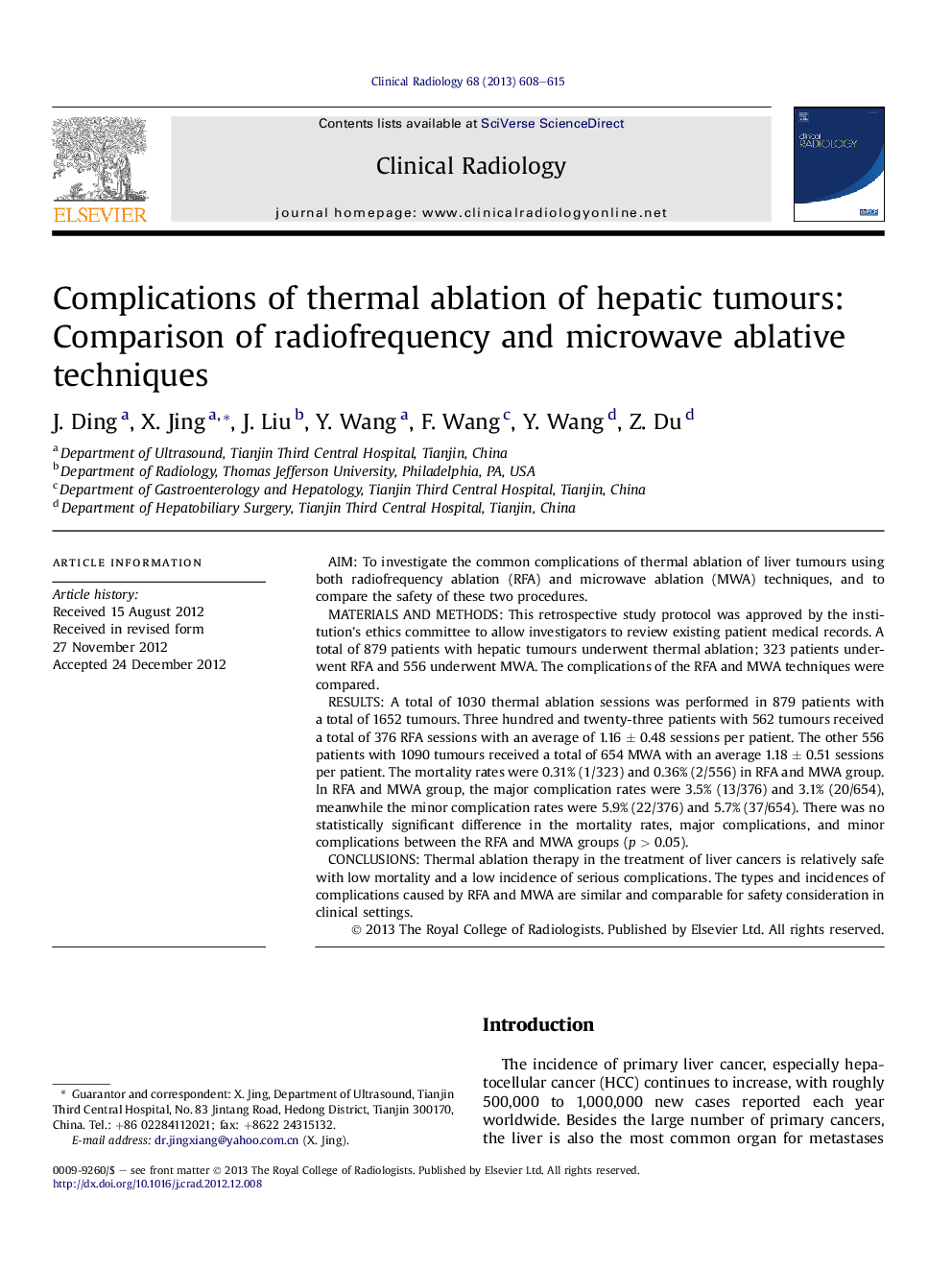| Article ID | Journal | Published Year | Pages | File Type |
|---|---|---|---|---|
| 3981899 | Clinical Radiology | 2013 | 8 Pages |
AimTo investigate the common complications of thermal ablation of liver tumours using both radiofrequency ablation (RFA) and microwave ablation (MWA) techniques, and to compare the safety of these two procedures.Materials and methodsThis retrospective study protocol was approved by the institution's ethics committee to allow investigators to review existing patient medical records. A total of 879 patients with hepatic tumours underwent thermal ablation; 323 patients underwent RFA and 556 underwent MWA. The complications of the RFA and MWA techniques were compared.ResultsA total of 1030 thermal ablation sessions was performed in 879 patients with a total of 1652 tumours. Three hundred and twenty-three patients with 562 tumours received a total of 376 RFA sessions with an average of 1.16 ± 0.48 sessions per patient. The other 556 patients with 1090 tumours received a total of 654 MWA with an average 1.18 ± 0.51 sessions per patient. The mortality rates were 0.31% (1/323) and 0.36% (2/556) in RFA and MWA group. In RFA and MWA group, the major complication rates were 3.5% (13/376) and 3.1% (20/654), meanwhile the minor complication rates were 5.9% (22/376) and 5.7% (37/654). There was no statistically significant difference in the mortality rates, major complications, and minor complications between the RFA and MWA groups (p > 0.05).ConclusionsThermal ablation therapy in the treatment of liver cancers is relatively safe with low mortality and a low incidence of serious complications. The types and incidences of complications caused by RFA and MWA are similar and comparable for safety consideration in clinical settings.
